The office of the facilitation of inter-Burundi dialogue was in Bujumbura until Friday 5th April to gather the grievances of those who have not been to Arusha.
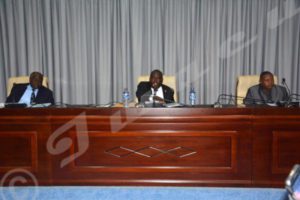
The facilitation team in Bujumbura for consultations
“We came to listen to those who were absent at the 3rd Arusha session,” said the Head of the facilitation delegation, Kenyan Ambassador Kenneth Vitisia, at the beginning of the plenary meeting in the afternoon of Wednesday 3 May.
On the sixth floor of Panoramique Hotel, the Facilitation office gathered in a large room, its guests namely the civil society, religious denominations, some representatives of the women’s forum as well as young people. Several political parties that did not participate at the Arusha session which took place in mid-February were also present.
The objective was not only to brief the parties present on the stage reached by their compatriots in Arusha, Tanzania from 16 to 19 February but also to reassure them that their voices will count. They had to “submit written responses to the facilitation team” until Friday.
Thus, the team of Facilitator Mkapa insisted on the roadmap for a way out of the crisis with the very 8 points condensed into four essential themes: political and security, electoral and legislative, constitutional as well as economic issues.
“The facilitation team is awaiting proposals on the restoration of peace and security, the opening of a political space conducive to the exercise of civil rights, diplomatic relations between Burundi and the international community, particularly Rwanda. Please let us know if you think the Constitution can be changed right now”, said Kenneth Vitisia.
The facilitation left Bujumbura for Entebbe in Uganda. It is supposed to meet with the civil society in exile as well as those it describes as non-violent protagonists who have not been in the third round.
The objective is to collect all the grievances that will serve as the basis for the next round scheduled in June. Before, there will of course be the summit of Heads of State of the East African Community scheduled at the end of this month. On this occasion, the facilitator in the Burundi crisis will submit his report and the obstacles that make the process drag on.
Behind the scenes of the sessions
Several stakeholders in the current dialogue were skeptical. “We wonder when it was decided to associate us”, said a participant. “I only got my invitation this morning,” said one representative of civil society.
There are also those who have gone so far as to question the opportunity of collecting other opinions. “What did they do with the opinions we submitted to them in December 2016 in Gitega? Some seemed to be against the facilitation team “that invites some to Arusha while we are obliged to await our turn, which may happen or not.” They ask on what criterion the facilitator chooses those who go to Arusha and those who must wait in Bujumbura.
It was also interesting to see right after the meeting, people who were not invited trying to insert their names on the list. “How do you want to participate, madam, representing a party whose president went to Arusha? Do you want to contradict your boss? “Others questioned their contribution to a crisis which is in fact political.”It is the politicians who have to get us out of the crisis in which they have plunged us. ”
Journalists who were only there to cover the session asked to be involved in the dialogue, a request which was eagerly accepted by the current facilitation.
Reactions
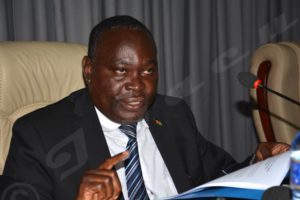 Kenneth Vitisia: “The Burundian institutions have been legitimized by the international community”
Kenneth Vitisia: “The Burundian institutions have been legitimized by the international community”
For the Head of the facilitation delegation, former Tanzanian President Benjamin Mkapa received the support of the Heads of State of the East African Community. He even declared that the legitimacy of President Pierre Nkurunziza no longer posed problems after his remarks last December. “If we want to move forward we must recognize that the Burundian institutions have been legitimized by the international community,” said the Kenyan Ambassador before indicating that no country has declared that it does not recognize the Burundian Government, a de facto legitimacy. “Afterwards, it is up to Burundians to move forward and propose solutions for a way out of the crisis.”
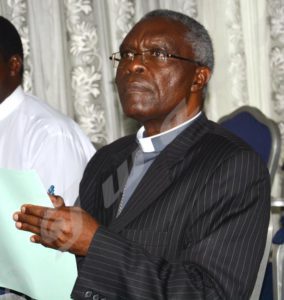 Bishop Joachim Ntahondereye: “Do not exclude those who could torpedo the process”
Bishop Joachim Ntahondereye: “Do not exclude those who could torpedo the process”
The chairman of the Conference of Burundi Catholic Bishops says an inclusive dialogue must be ensured so that all the protagonists can be associated with it “in order to avoid regretting that they have excluded those who, through resentment, could plan to torpedo the way out of the crisis”. The Bishop of Muyinga says, however, that “it is the political parties that will take us out the crisis in the end”.
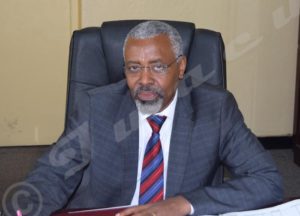 Jean de Dieu Mutabazi: “Dialogue should be limited to the strict preparations for the 2020 elections.”
Jean de Dieu Mutabazi: “Dialogue should be limited to the strict preparations for the 2020 elections.”
RADEBU party and its close parties say they do not have anything new to say. According to Jean de Dieu Mutabazi, everything was said in a correspondence sent to the facilitation and Heads of State. “We maintain the same positions as those taken by the political parties gathered in Gitega on 20 April 2017.” The most essential thing is to analyze Burundi’s complaint against Rwanda, arrest all coup plotters and extradite them to Burundi and then proceed with the amendment of the Constitution. “Dialogue should be limited to the strict preparations for the 2020 elections.”
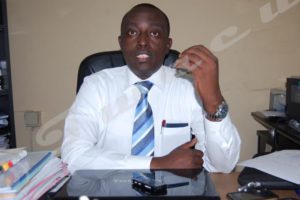 Pacifique Nininahazwe: “I keep questioning his approach.”
Pacifique Nininahazwe: “I keep questioning his approach.”
For the activist of the civil society in exile, it’s been more than a year Benjamin that Mkapa has held consultations with different groups of people as the facilitator in the inter-Burundi dialogue. “I keep questioning his approach.” “Let’s wait and see”, he says skeptically.

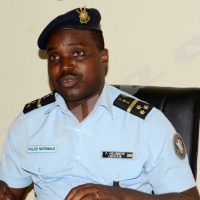
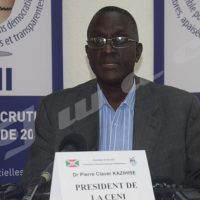
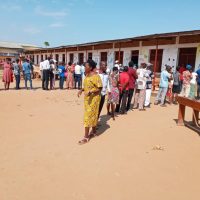
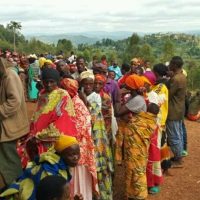
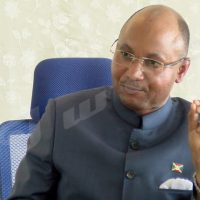













 IWACU Open Data
IWACU Open Data

